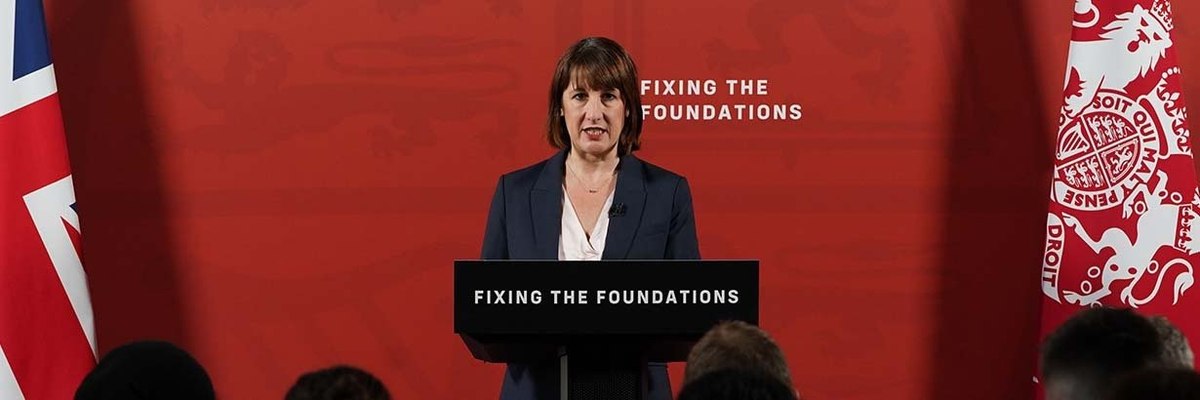Six in ten Britons think it is necessary the government cuts spending, but 45% believe they’re cutting it in an unfair way
This week, in her first major speech as chancellor, Rachel Reeves outlined the results of her inaugural spending audit, claiming that a hidden £22bn overspend by the last government left her with ‘difficult decisions’ to make over how the government raised and spent money. This has included introducing means-testing for pensioners’ winter fuel allowances and cancelling several plans announced by the last government, all balanced against a higher than previously budgeted pay rise for public sector employees – notably junior doctors.
Luckily for the new chancellor, six in ten Britons (58%) buy her case that it is necessary at the present time for the government to cut its spending, with just 20% viewing the choice as not necessary. This commands near-identical levels of agreement across voters – between 63% and 67% of Conservative, Labour, Lib Dem and Reform voters all think cutting spending is necessary.
However, while they accept the government’s argument that spending cuts are necessary, Britons do not believe that the government is planning to cut back in a fair way. Only a quarter of the public (24%) believe the plans already announced by Reeves represent a fair path, including less than half (46%) of Labour voters.
For 45% of Britons, the government’s proposals are simply unfair. Given one of the main targeted decisions is the ending of universal winter fuel allowance for pensioners, it should not be surprising that there is something of an age curve here – two-thirds of over 65s believe the planned cuts are unfair, with just one in eight (13%) viewing them as just. Younger Britons are more split – 28% of 18-24 year olds think the plans are fair, against 35% believing them to be unfair.
Of course, Reeves’ proposed costs, cuts and cancellations are varied and wide-ranging, so naturally attract different verdicts when considered individually as opposed to as a whole package.
Pay rises for public sector employees are at the more popular end – two-thirds of Britons (65%) support the average 5.5% rise for all public sector employees, while 58% support the higher rise for junior doctors, which holds the side effect of ending the ongoing strike action. Cancelling the proposed road tunnel near Stonehenge also gains majority support, with 53% of the public believing it is the right thing to do.
By contrast, halting the last government’s plans to build, replace or expand 40 hospitals is viewed as the wrong thing to do by 63% of Britons, with just one in six (17%) thinking it was the right decision for Reeves to give it the axe. Cancelling plans to put a cap on long-term social care costs finds similarly limited support (18%), against six in ten (59%) feeling the change in direction is the wrong path.
Both changes see more of every segment of the public view them as the wrong thing to do than the right thing, including being opposed by approximately half of Labour’s own voters (48-51%).
The key announcement of introducing means testing for winter fuel allowances divides Britons, with 43% considering it the right thing to do but 42% saying the government are making the wrong call. Naturally, opposition to the policy increases with age – just one in five 18-24 year olds (21%) view it as the wrong thing to do, compared to two-thirds of over 65s (67%).
With the public – including many Labour voters – opposed to some of her first announcements, it’s not surprising that the number of Britons with an unfavourable view of Reeves has risen from 25% to 37% in recent weeks.
How do you feel about government spending, the economy in general, and everything else? Have your say, join the YouGov panel, and get paid to share your thoughts. Sign up here.
Photo: Getty







